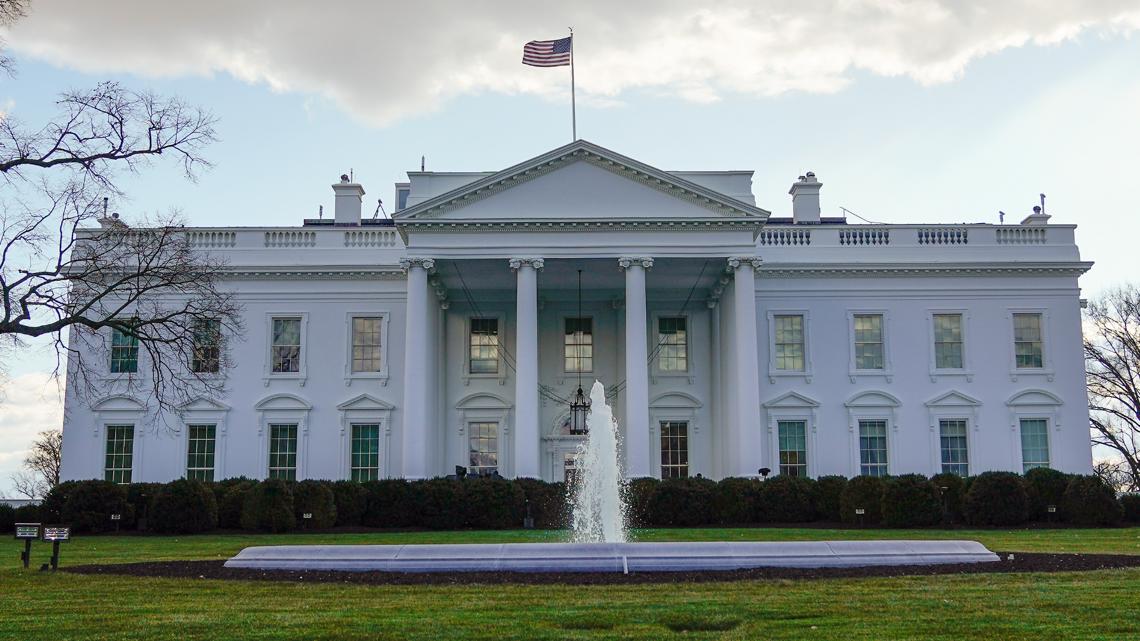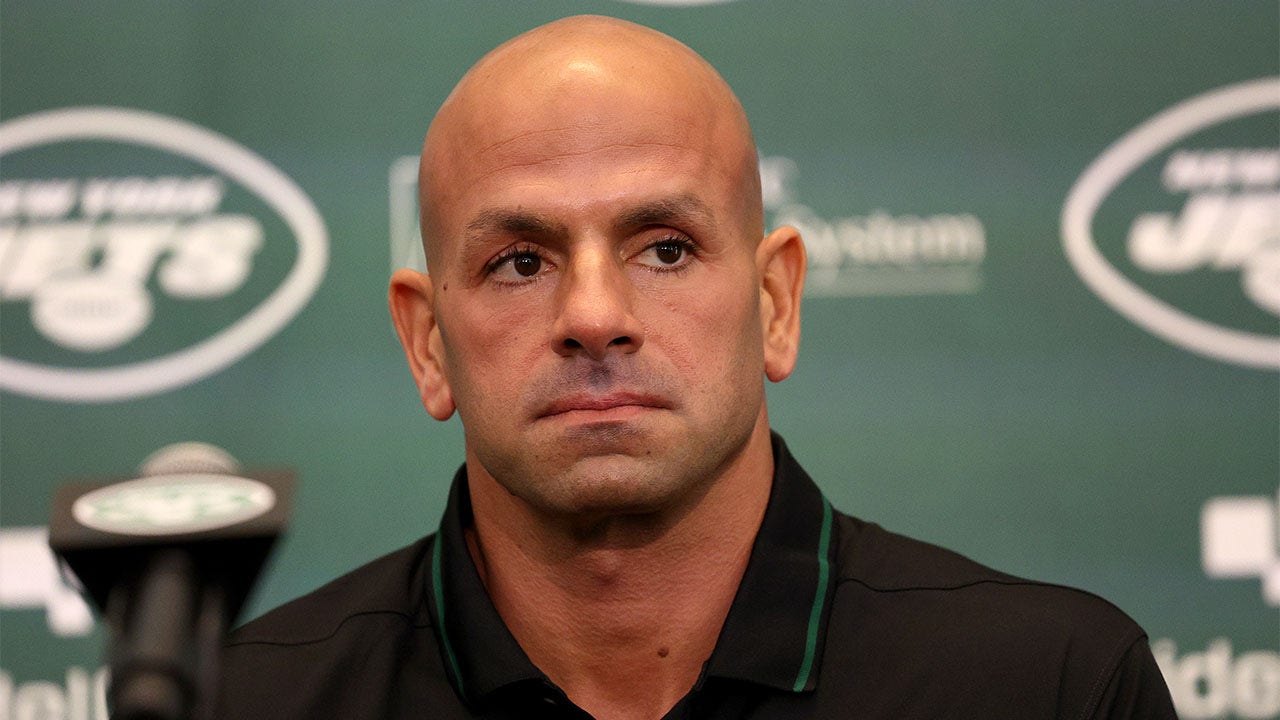On Thursday’s episode of The Excerpt podcast: Vice President Kamala Harris made her first formal appearance on Fox News Wednesday, while former President Donald Trump fielded town hall questions at an Univision event in Florida. USA TODAY Democracy Reporter Erin Mansfield discusses three swing state counties (and their controversial election officials) to watch in November. The man arrested with guns near a Trump rally files a lawsuit, saying he was falsely called a threat. USA TODAY Network Delaware Public Safety and Investigations Reporter Isabel Hughes talks about those lost in North Carolina floodwaters during Hurricane Helene.
Hit play on the player below to hear the podcast and follow along with the transcript beneath it. This transcript was automatically generated, and then edited for clarity in its current form. There may be some differences between the audio and the text.
Podcasts: True crime, in-depth interviews and more USA TODAY podcasts right here
Taylor Wilson:
Good morning. I’m Taylor Wilson and today is Thursday, October 17th, 2024. This is The Excerpt. Today, Harris and Trump steer in different directions during Wednesday events. Plus we talk about controversial county election officials ahead of November, and we remember those lost, including young children, in Hurricane Helene.
♦
Vice President Kamala Harris sat down with Fox News chief political anchor Bret Baier in an interview that aired last night. It was her first formal appearance on the network known for its conservative commentators. The two repeatedly spoke over each other making for tense exchanges throughout the nearly thirty-minute segment. One key moment centered on immigration when the Fox News host asked how many undocumented immigrants have illegally entered the US under the Biden-Harris administration. Harris did not give a number. Harris though, did signal that she no longer supports some of the progressive immigration policies she backed as a candidate in the 2020 Democratic presidential primary like allowing undocumented immigrants to apply for driver’s licensees, and to receive taxpayer funded healthcare. Harris also delivered her most forceful break from Joe Biden of the 2024 campaign, arguing that if elected, she would not be a continuation of the outgoing president.
Meanwhile, former president Donald Trump participated in a town hall in Miami-Dade County with Univision last night and fielded questions from undecided Latino voters in his home turf of Florida. There he doubled down on false claims about Haitian migrants eating pets, and on more pressing immigration issues, Trump was asked about food prices if he were to undergo mass deportations. Trump did not address whether food prices would increase if he followed through with his pledge to deport millions of people across the US, and claimed that he had a great immigration system that immigrants were coming through legally. Trump was also asked about the rising prices of groceries and attributed the hikes to the Biden-Harris administration, claiming there was no inflation under his administration. Inflation in the US began to rise during the COVID pandemic in 2020, which led to a rise in goods and services according to the US Bureau of labor and statistics. Inflation hit a three-year low last month. You can read more from both Harris and Trump’s Wednesday events with links, in today’s show notes.
♦
From refusal to certify elections to not securing voting machines, county officials have taken matters into their own hands. I spoke with USA TODAY Democracy Reporter Erin Mansfield, about three controversial swing state counties to watch in the election. Erin, thanks for hopping on.
Erin Mansfield:
Thank you for having me.
Taylor Wilson:
So Erin, I want to just start with this. What really is the role of counties in elections functionally? How important are they?
Erin Mansfield:
So there are about 3000 counties in this country, and while there are some states, say the ones in New England, that don’t really have county governments, by and large our elections are run by county governments. They do it in different ways, their state laws differ. But the county is just the prevailing type of government to administer elections. They often sign off on election results. You might have a county commission, you might call it a board of supervisors, a lot of times they’ll sign off on election results. So they’re very important and they’re pretty much right in our backyards.
Taylor Wilson:
All right, so let’s run through these three swing state counties that you wrote about, Erin, starting in Georgia. What can you tell us about Spalding County and some of the controversial moves officials have taken there?
Erin Mansfield:
Yeah, so Spalding County, Georgia, it’s about an hour south of Atlanta. One of the things that they voted recently to do is to hand count ballots in order to do an audit of machines. And this is an idea that has caught on nationwide, not with the majority of the American people, but among people who maybe they question 2020’s election results and would like to see changes or generally they often just mistrust machines. So they are going to actually pick the names of two different [inaudible 00:04:14] out of a hat and they’re going to count how many ballots were cast as a way of checking those results against the machine counted ones.
Taylor Wilson:
We know Pennsylvania is also a major battleground for next month. What are some of the issues that play in Fulton County there?
Erin Mansfield:
Not to be confused with the county in Georgia, but Fulton County, Pennsylvania, it’s right on the Maryland border. It has about 15,000 people, very small, very red. Reuters has described it as Trump country. They overwhelmingly vote for the former president. Their issue also involved voting machines, but in a different way. As we know, back in the aftermath of the 2020 election, there was a lot of inaccurate information about the reliability of voting machines and vote tabulation machines. And what happened was their county commission brought in a third party to inspect their voting machines and the state considered that a huge security breach. They decided, we can’t have these machines online anymore, we’re going to decertify them. You need to use different machines going forward. And Fulton County took them to court to challenge that.
And they have been in a three-year-long litigation battle. There are arguments over who’s paying legal bills. And one of the stunning things that happened was according to documents from the Pennsylvania Supreme Court, while they were in court saying, we don’t think the state has the power to decertify our election machines, they were about to bring in another company to inspect their machines. So the state went, they got a court order. The Supreme Court said, okay, no, don’t have the voting machines touched. And then it seems like before they knew it, there was a third company brought in to inspect their voting machines. So it’s really all about this idea that something must have been wrong with the voting machines in Fulton County and the state wants them offline and they are not being used. But what you have is a local board, two new members have been elected since this all started, but it’s unclear what might happen going forward. And this is a board that is going to have to certify the results of the presidential election.
Taylor Wilson:
And Erin in Arizona, we hear a lot about Maricopa County, but you talked about Cochise County, which has multiple officials under fire here as well. What controversies have we seen there?
Erin Mansfield:
It’s a pretty small, pretty red county, right on the corner of New Mexico and Mexico. And two Republicans are actually under indictment for conspiracy and interference with an election officer, because they refused to certify the results of a midterm election prior to a state deadline. They eventually did because a court ordered them to, but they delayed it so long that they were indicted by a grand jury for these two crimes. They are still on the board. They’re a two-one majority on the three-member board. They also went through a period when they were delaying that specific vote. They wanted to have more of their ballots counted by hand as opposed to with a machine. I, unfortunately, was not able to get these two public officials to talk to me for this story. Their colleague, the only Democrat on the board, said she was hopeful that they won’t be bringing forth any more hand-counting motions or any more efforts to delay certification. But again, these folks will be responsible for certifying the results of the presidential election.
Taylor Wilson:
All right, less than three weeks to go. We’ll keep an eye out on these counties and these battleground states. Erin Mansfield covers democracy for USA TODAY. Thank you Erin.
Erin Mansfield:
Thank you.
♦
Taylor Wilson:
The man who was arrested by Riverside County Sheriff’s deputies on suspicion of illegally possessing guns near former president Donald Trump’s California rally, has filed a lawsuit against Sheriff Chad Bianco. The man, Vem Miller of Las Vegas, accuses Bianco of knowingly defaming him by falsely saying he was a threat and that Miller may have even planned to kill Trump. The lawsuit, filed Tuesday in federal court, alleges Bianco spread those lies in several media appearances he made touting the arrest because he wanted to falsely portray himself as a heroic sheriff who had saved Trump from another assassination attempt. In a statement yesterday, the Sheriff’s Department’s Media Information Bureau said the department acknowledged the lawsuit and take such matters seriously, but cannot comment on the specifics as the matter is pending litigation.
♦
In the aftermath of Hurricane Helene, communities in North Carolina are mourning. Meghan Drye lost her parents and seven-year-old son and floodwaters that she herself barely survived.
Megan Dry:
This is the hardest thing I think I will ever have to go through. Losing my child and my parents in the same day and wondering why it wasn’t me too.
Taylor Wilson:
I spoke with USA TODAY Network Delaware Public Safety and Investigations Reporter. Isabel Hughes, to learn more about some of those lost, including young children, in the devastating storm. Isabel, thank you so much for joining me today on The Excerpt.
Isabel Hughes:
Hey Taylor, thanks for having me.
Taylor Wilson:
So Isabel, I want to start by hearing about the Drye family and this real life nightmare that they experienced during Helene.
Isabel Hughes:
Initially the water came and filled up their basement and then it came into their first floor and they moved up to the second floor and then it came up to the second floor and they ultimately got to the roof of their house. And the water rose 27 feet above the road and they were on the roof for several hours. And then at some point, the house collapses. The four of them managed to stay on the roof for a little bit and then some power lines and trees come through and kind of knock off Megan and her dad. And she eventually sees her dad float by her. And then she can’t see her son or her mother anymore, but she hears her mother screaming for her son and then she hears her son screaming. And then, at some point, her mom floats by her. And very shortly after that her son floats by her.
And at that point she’s caught up in the water. The water is pushing her down. There are times she thinks she’s going to drown. Obviously she has just watched three of her family members be sucked into the current and down the river. It was Megan’s mother, Nora, her father Michael, who were both 73, and Megan’s 7-year-old son Micah, who ended up being swept away by the floodwaters.
Taylor Wilson:
It’s a completely unthinkable Isabel, absolutely devastating story. You also reported on and wrote about the Wisely family who also had a nightmare through this storm. What did you learn from them and really what was their experience?
Isabel Hughes:
As floodwaters started to rise, they said, okay, we need to evacuate. It was Aly Wisely, her fiance, Knox Petrucci, and then Aly’s two sons, Lucas and Felix, and they were nine and seven years old. The four of them end up going to their car and trying to drive away. They’re in a mountainous area and their car starts to float. So they say, we’re getting out of the car, we’re going to try to make it back to land. They ended up getting out of the car and that’s when a “big wave” came and swept them into the river. They all ended up dying also. You have another family that was just washed away. Telling these stories of entire families that were lost to these floods is just … It gets you.
Taylor Wilson:
It’s truly impossible to imagine Isabel and it’s well told by you. So Isabel, there are still other children unaccounted for. What’s the latest here and what do efforts look like to account for them?
Isabel Hughes:
As of Monday, there were still 21 Buncombe County students who were unaccounted for, and that didn’t necessarily mean that they were lost to Helene or what, this is purely school officials have not been able to get in contact with them. And school officials did say that since Helene, some of the families they have successfully made contact with, have gone out of state. Some have even gone international. It could be that these are just students that they just haven’t been able to get in contact with and they’re perfectly fine.
Taylor Wilson:
And Isabel, in terms of the mourning process for these surviving family members, how are folks remembering loved ones and really what’s next for these devastated communities as they try to heal and move forward?
Isabel Hughes:
They’ve only just got water back on, at least in Asheville. So from a practical perspective, it’s like, all right, let’s focus on getting up and running. Let’s take showers for the first time in, for some people, two weeks. I really think it’s just going to be a one step at a time, one day at a time, type thing. You have this backdrop of these gorgeous mountains and a lot of parts of Asheville in the county that were not touched or that only really saw downed trees and stuff. And the trees have been piled on the sides of the road and doesn’t look like a terrible disaster came through.
And then you’ll go down to areas like the River Arts District and everything is decimated. It was a whole artist colony down there, and that’s the kind of thing that you have decades and decades worth of artists and storytellers and all that. And it’s like, I don’t know if that’s ever going to come back. They have a very long, long road ahead of them.
Taylor Wilson:
Isabel Hughes covers public safety and investigations for the USA TODAY Network in Delaware. Isabel, I know this is just difficult work, so I appreciate you doing it and coming on to discuss.
Isabel Hughes:
Absolutely. Thank you so much.
♦
Taylor Wilson:
Black voters have historically voted reliably Democrat, but is there a significant generational divide when it comes to engaging in politics and when it comes to choosing a political party? USA TODAY reporters looked at a variety of issues and topics ranging from climate change to retirement planning, through the lens of generations, old, aging and Young. USA TODAY National Columnist, Suzette Hackney joins the Excerpt today to share how black voters across swing states feel about the 2024 presidential election. You can find that episode right here on this feed beginning at four PM Eastern Time.
♦
And thanks for listening to The Excerpt. You can get the podcast wherever you get your audio, and if you’re on a smart speaker, just ask for The Excerpt. I’m Taylor Wilson and I’ll be back tomorrow with more of The Excerpt from USA TODAY.
This article originally appeared on USA TODAY: Harris pressed on immigration in Fox News interview | The Excerpt













